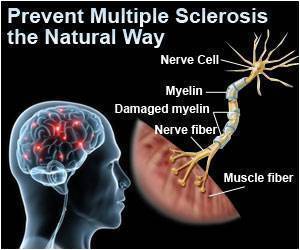Various risk factors are believed to contribute to the development of autoimmune disorders such as multiple sclerosis.

Two comprehensive Review articles are part of a focus on "Cytokines in Neuroinflammation and Immunity" in a special issue of Journal of Interferon & Cytokine Research (JICR), a peer-reviewed publication from Mary Ann Liebert, Inc., publishers. The articles are available free on the JICR website.
Kiel Telesford and Lloyd Kasper, Geisel School of Medicine at Dartmouth University (Lebanon, NH) and Javier Ochoa-Repáraz, University of California-Santa Barbara, describe three key characteristics of the gut microbiome related to immune cell activity and cytokine production that may be relevant to susceptibility to and treatment of autoimmune disorders such as multiple sclerosis.
In the article "Gut Commensalism, Cytokines, and Central Nervous System Demyelination," the authors note that our understanding of the biology of the gut microbiome and the immunoregulatory potential of bacteria and parasites in the gut is still in its infancy.
In the Review article "Interferons, Signal Transduction Pathways, and the Central Nervous System," Shreeram Nallar and Dhan Kalvakolanu, University of Maryland School of Medicine, Baltimore, explore in detail the latest research pointing to the role of cytokines, and in particular interferons, in contributing to the development of diseases affecting the central nervous system. The authors discuss the potential effects of either an excess or lack of interferons, the inflammatory effects of cytokines, and new therapeutic research strategies.
"The communications between the microbial community in the gut and the host immune system is turning out to be remarkably complex and is likely to impact on many aspects of both health and disease," says Editor-in-Chief Thomas A. Hamilton, PhD, Chairman, Department of Immunology, Cleveland Clinic Foundation, Ohio.
Advertisement












